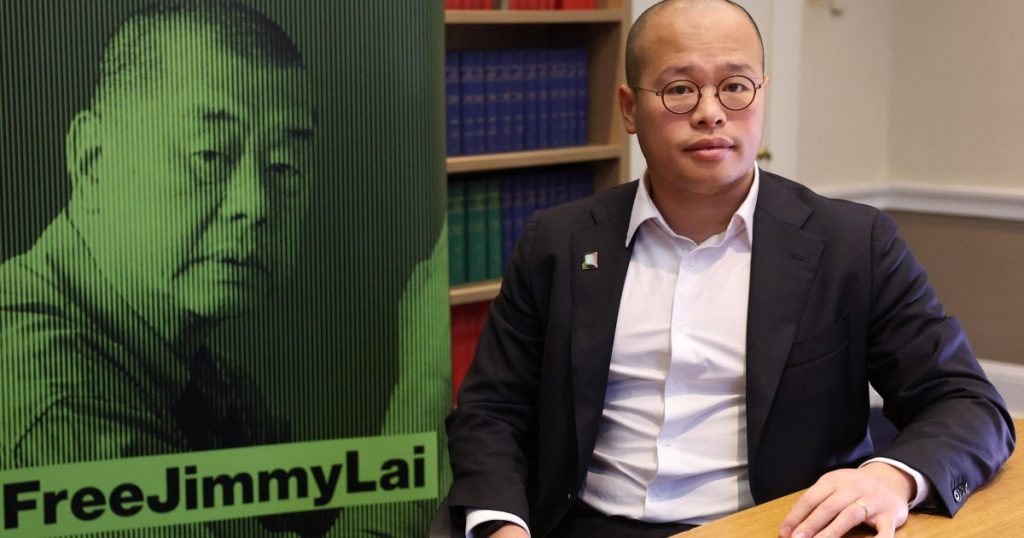‘No evidence’ Australia’s Bondi gunmen trained in the Philippines: Official

Philippine official said ‘a mere visit’ to the country does not support claims the men underwent ‘terrorist training’. There is no evidence the suspected gunmen in the deadly Bondi Beach attack received military training in the southern Philippines, Manila’s national security adviser has said, as Australia announced plans to introduce measures to tighten the country’s hate speech laws. In a Wednesday statement, Philippine National Security Adviser Eduardo Ano confirmed the two suspects in Sunday’s attack in Sydney, Australia – which saw 15 people killed after gunmen opened fire at a Jewish event – were in the country from November 1 to 28 this year. Recommended Stories list of 3 itemsend of list Ano said immigration records showed that 50-year-old Sajid Akram and his 24-year-old son Naveed Akram travelled via the Philippine capital Manila to Davao City on the southern island of Mindanao. He added that Sajid had entered the country on an Indian passport, while Naveed entered on an Australian one. Ano added that there was “no evidence” that the men had received “any form of military training” while in the country. “A mere visit does not support allegations of terrorist training, and the duration of their stay would not have allowed for any meaningful or structured training,” he said. The men mostly stayed in their hotel rooms when in Davao, according to a report by local news outlet MindaNews. Staff at the hotel said the pair checked in on November 1 and rarely went out for more than an hour at a time during their almost monthlong stay. Australian authorities announced on Wednesday that Naveed Akram had been charged with 59 offences for his role in the attack, including murder and terror charges, when he woke from his coma. Sajid Akram, his father, was shot dead by police at the scene. Ano also suggested that reports describing Mindanao – home to most of the Catholic-majority country’s Muslim population, plagued by a decades-long secessionist conflict – as a “hotspot for violent extremism or Islamic State ideology” were “outdated and misleading”. Advertisement “Since the 2017 Marawi Siege, Philippine security forces have significantly degraded ISIS-affiliated groups in the country,” he said, referring to a five-month battle in which the ISIL-inspired Maute group seized the southern city and fought government forces. “The remnants of these groups have been fragmented, deprived of leadership, and operationally degraded,” Ano added. A 2014 peace agreement, which saw rebels drop their secessionist aspirations in exchange for a more powerful and better-funded Muslim autonomous region called Bangsamoro, has also brought a degree of calm to Mindanao. But smaller rebel groups continue to carry out sporadic, deadly attacks across the restive southern Philippines’ region. ‘Also an attack on the Australian way of life’: Anthony Albanese On Thursday, Australian Prime Minister Anthony Albanese pledged to introduce new legislation cracking down on hate speech in response to the Bondi Beach attack, as he acknowledged that Australia had witnessed an increase in anti-Semitism since the Hamas-led October 7, 2023, attacks on Israel, and Israel’s genocidal war on Gaza. Announcing the new measures at a news conference, Albanese said his government will seek to introduce legislation making it easier to charge people promoting hate speech and violence – including religious preachers – while new powers will be created to cancel or reject visas of people who spread “hate and division”. The legislation would also develop a regime to target organisations whose leaders engage in hate speech, Albanese added. Albanese said rising anti-Semitism “culminated on Sunday in one of the worst acts of mass murder that this country has ever seen”. “It was an attack on our Jewish community – but it was also an attack on the Australian way of life. Australians are shocked and angry. I am angry. It is clear we need to do more to combat this evil scourge, much more,” he said. New South Wales Premier Chris Minns said on Wednesday he would recall the state parliament next week in order to pass urgent reforms on gun laws. Adblock test (Why?)
US kills 4 in latest Pacific Ocean attack as Venezuela tension spirals

New attack brings death toll to nearly 100 from US strikes on vessels in the eastern Pacific and Caribbean. The United States military said it killed four people in its latest attack on a vessel in the eastern Pacific Ocean, announcing the “lethal” strike after resolutions seeking to rein in President Donald Trump’s aggression towards Venezuela were voted down by US lawmakers. US Southern Command (SOUTHCOM), which is leading the burgeoning “Southern Spear” military operation in the Latin America region, said the attack on Wednesday targeted “four male narco-terrorists” without providing any evidence that the destroyed vessel was involved in drug trafficking. Recommended Stories list of 4 itemsend of list “The vessel was transiting along a known narco-trafficking route in the Eastern Pacific and was engaged in narco-trafficking operations,” SOUTHCOM said in a post on social media alongside a video showing a speedboat being destroyed. Ordered by US Defense Secretary Pete Hegseth, the attack brings to almost 100 the number of people killed in US strikes on 26 vessels – that Washington has acknowledged – in the eastern Pacific Ocean and Caribbean since September. While legal experts have accused the US of carrying out a campaign of extrajudicial killings in international waters, Trump has justified the attacks as necessary to halt the flow of drugs into the US from drug cartels, particularly those based in Venezuela. On Wednesday, the Republican-majority House of Representatives voted 213 to 211 against a resolution directing the president to remove US forces from hostilities with or against Venezuela without congressional authorisation. Advertisement The House also voted 216 to 210 against a resolution that would remove US forces from hostilities with “any presidentially designated terrorist organization in the Western Hemisphere” unless authorised by Congress. The defeat of the resolutions comes as a huge US military deployment is under way in Latin America, involving thousands of troops, Washington’s largest aircraft carrier, and a nuclear-powered submarine, as Trump threatens military action to remove Venezuelan President Nicolas Maduro’s government. On Tuesday, Trump ordered a naval blockade of all oil tankers, which are under US sanctions, entering and leaving Venezuelan ports, a move that Maduro’s government called a “grotesque threat” that was aimed at “stealing the riches that belong to our homeland”. Last week, US soldiers boarded and seized the Skipper oil tanker off the coast of Venezuela and were reported to have brought the vessel to the US state of Texas to unload its oil cargo. The New York Times reports that Venezuela’s navy has started to escort ships carrying petroleum products from ports following Trump’s announcement of the sea blockade. Several ships left the country’s east coast with a naval escort on Tuesday evening and Wednesday morning, the Times reported, citing three people familiar with the matter. Latin American leaders and United Nations Secretary-General Antonio Guterres have also expressed concerns as the prospect of war looms larger as tensions mount between Washington and Caracas. Mexican President Claudia Sheinbaum called on the UN to act to prevent violence in Venezuela. “It has not been present. It must assume its role to prevent any bloodshed,” she said on Wednesday, reiterating Mexico’s position of being against intervention and foreign interference in Venezuela. Brazil’s President Luiz Inacio Lula da Silva said he was “concerned about President Trump’s attitudes towards Latin America, about the threats”. Lula also said that he had urged dialogue between Caracas and Washington in a call with Trump earlier this month. “The power of the word can outweigh the power of the gun … I said to Trump: ‘If you are interested in talking to Venezuela properly, we can contribute. Now, you have to be willing to talk, you have to be patient,’” Lula said. In Venezuela, Maduro held a phone call with UN chief Guterres and denounced the US naval blockade, according to reports. Maduro “denounced … the recent escalation of colonial threats against Venezuela”, the Agencia Venezuela news site reported. Advertisement The Venezuelan leader also described as “barbaric diplomacy” comments by US administration officials that “Venezuela’s natural resources belong to it”. Adblock test (Why?)
AFCON 2025: Who are the top players to watch in Morocco?

The CAF Africa Cup of Nations (AFCON) gets under way on Sunday, with the host nation Morocco facing Comoros in Group A at Rabat’s Prince Moulay Abdellah Stadium. Across the four weeklong continental showpiece, some of the game’s biggest names will take centre stage. Here’s a look at our top-10 players who are set to light up the competition: ⚽ Mohamed Salah (Egypt) Arguably the biggest African football star of his generation, Mohamed Salah heads into the tournament hoping to lead Egypt to a record-extending eighth title. But the 33-year-old arrives short of his usual standards: he has scored just five goals in 20 matches across all competitions this season and has slipped down the pecking order under Liverpool’s new manager, Arne Slot. Yet Salah’s importance to Egypt has never been in doubt. The two-time African Footballer of the Year remains their talisman, and his nine goals in the CAF World Cup qualifying phase were crucial in securing a spot at next summer’s World Cup. At AFCON, Salah will be chasing both redemption and a return to the red-hot form that earned him the nickname “the Egyptian King”. Mohamed Salah, who has struggled for form at Liverpool, has raised doubts over whether he will play for the club again after AFCON [File: Amr Nabil/AP] ⚽ Achraf Hakimi (Morocco) Fresh off the high of being crowned African footballer of the year, Achraf Hakimi headlines the cast of star home nation players set to take the field in Morocco. The 27-year-old, widely regarded as one of the best right-backs in the world, was instrumental in PSG’s treble-winning campaign, capped off by their long-awaited UEFA Champions League triumph in May. Advertisement As Morocco’s captain, Hakimi carries the hopes of millions in the football-mad country. Morocco’s Atlas Lions will look to him not only for his defensive stability but also for his playmaking spark as they chase only the second AFCON title in their history – 50 years after their maiden crown. There had been concerns over Achraf Hakimi’s availability for AFCON due to an ankle injury, but Morocco’s head coach, Walid Regragui, is optimistic the full-back will recover in time to play [File: Aurelien Morissard/AP] ⚽ Victor Osimhen (Nigeria) Still recovering from the heartbreak of missing out on the 2026 World Cup, Victor Osimhen will look for solace and vindication at the continental championship. The Galatasaray forward, known for his trademark face mask, has been in prolific form this season with 12 goals in 16 matches across all competitions, including six in the Champions League. Despite sitting second on Nigeria’s all-time scorers list, Osimhen has struggled to translate that dominance to major tournaments: he has found the net only once, at the previous AFCON in 2023 when the Super Eagles reached the final. This edition offers him a chance to change that narrative. Victor Osimhen, pictured, and his Nigeria teammates are hurting after another unsuccessful World Cup qualifying campaign with the quickest route to redemption being an AFCON title [File: Luc Gnago/Reuters] ⚽ Bryan Mbeumo (Cameroon) Rediscovering his scoring touch, star forward Bryan Mbeumo could play a crucial role in Cameroon’s campaign as they begin a new chapter under a new coach following their failure to qualify for the World Cup. With seven goals across all competitions, Mbeumo has been Manchester United’s standout performer in an otherwise mixed and chaotic season for the Red Devils. An injury kept Mbeumo out of the previous AFCON, but this time, the 26-year-old has a golden opportunity to clinch his first trophy with Cameroon. The task, however, will not be straightforward. With veteran striker Vincent Aboubakar surprisingly left out of the squad, Mbeumo inherits the dual responsibility of leading the line and captaining the team. Cameroon forward Bryan Mbeumo has been Manchester United’s highest scorer this season [File: Gregory Bull/AP] ⚽ Wilfried Zaha (Ivory Coast) An impressive loan spell with Charlotte in Major League Soccer (MLS) has earned Wilfried Zaha a surprise recall to the national team for the first time in two years. The 33-year-old winger was omitted from the squad that won AFCON 2023, but his return to form, marked by 10 goals and 10 assists this season, proved too compelling to ignore. Advertisement Zaha’s years of experience, ability to take on defenders and current sharpness should provide a timely boost to the reigning champions’ aspirations of defending their AFCON title in Morocco. Wilfried Zaha won two caps for England before switching international allegiance to the Ivory Coast [File: Nell Redmond/AP] ⚽ Sadio Mane (Senegal) Sadio Mane once dominated headlines with his exploits in Europe for clubs such as Liverpool and Bayern Munich, but his move to Al Nassr in the Saudi Pro League has shifted much of the media spotlight away from him. Yet the 33-year-old, widely regarded as one of Africa’s greatest players, remains a decisive figure for Senegal: his five goals in CAF World Cup qualifying were the most by any Senegalese player. In Morocco, Mane will aim to replicate the form that earned him player of the tournament honours at AFCON 2021 when the winger guided the Teranga Lions to their first continental title. Senegal’s Sadio Mane has 12 goal involvements in 17 matches for Al Nassr this season [File: Kenzo Tribouillard/AFP] ⚽ Iliman Ndiaye (Senegal) With six goal involvements in the Premier League, Iliman Ndiaye has been one of Everton’s most reliable players in the Premier League this season, and the 25-year-old will hope to bring that positive influence to Senegal’s attack. The midfielder, known for his dribbling and finishing, has enjoyed a rapid ascent in recent years, moving from England’s second-tier league in 2023 to being a key contributor for the Toffees as they close in on a top-six spot in the top-flight. On the international stage, Ndiaye has been an integral part of Senegal’s setup for the past three years, and he will look to make his mark at his third AFCON appearance. Iliman Ndiaye is a key part of Everton’s attack and will hope to carry
Winter storms cause war-damaged buildings to collapse in Gaza

NewsFeed Heavy rain and strong winds are causing buildings weakened by Israeli bombardment to collapse across Gaza. At least 17 buildings have fallen since the beginning of December, as hundreds of thousands Palestinians shelter in unsafe buildings or makeshift tents. Published On 17 Dec 202517 Dec 2025 Click here to share on social media share2 Share Adblock test (Why?)
Faced with Trump’s deportation push, US teachers fear leaving the classroom

Washington, DC – For the past two years, weekdays for Susanna have meant thumbing through picture books, organising cubby holes and leading classroom choruses of songs. But her work as a pre-school teacher came to a screeching halt in October, when she found out her application to renew her work permit had been denied. Recommended Stories list of 3 itemsend of list Susanna, who uses a pseudonym in this article for fear of reprisals, is one of the nearly 10 percent of teachers in the United States who are immigrants. But while the US has increasingly looked abroad to fill teacher shortages, some foreign-born teachers say the deportation push under President Donald Trump has threatened their livelihoods — and risks traumatising their students. Susanna, an asylum applicant who fled violence in Guatemala nearly a decade ago, said that losing her permit meant she had to stop working immediately. She recalls breaking the news to her students, some of whom are only three years old. Many were too young to understand. “In one week, I lost everything,” Susanna told Al Jazeera in Spanish. “When I told the kids goodbye, they asked me why, and I told them, ‘I can only tell you goodbye.’ There were kids that hugged me, and it hurt my heart a lot.” Advocates warn that the sudden departure of teachers could harm the development of young children in school [Mohammed Zain Shafi Khan/Al Jazeera] Looking abroad for teachers Estimates vary as to how many foreign-born teachers currently work in the US. But one 2019 report from George Mason University found that there were 857,200 immigrants among the country’s 8.1 million teachers, in roles ranging from pre-school to university. Advertisement For the 2023-2024 school year alone, the US government brought 6,716 full-time teachers to the country on temporary exchange visas to fill openings in pre-kindergarten, primary and secondary school education. Many hailed from the Philippines, as well as countries like Jamaica, Spain and Colombia. The uncertainty for immigrants under Trump’s second term, however, has proven disruptive to schools that rely heavily on foreign-born teachers. That is the case for the pre-school where Susanna worked, CommuniKids, which offers language immersion programmes in Washington, DC. Cofounder and president Raul Echevarría estimates that immigrants — both citizens and non-citizens working with legal authorisation — comprise about 90 percent of CommuniKids’s staff. But Echevarría told Al Jazeera that the push to rescind legal pathways to immigration has jeopardised the employment of several faculty members. Five other teachers at the school have seen their ability to work affected by changes to the Temporary Protected Status (TPS) programme. All five, Echevarría explained, were originally from Venezuela. But in October, the Trump administration ended TPS status for more than 350,000 Venezuelan citizens, including the teachers at CommuniKids. Their authorisation to work legally in the US will expire on October 2, 2026, according to the US Citizenship and Immigration Services website. “These teachers lost their ability to make a living,” Echevarria said, noting that his school requires educators with expertise in languages like Spanish, French and Mandarin. CommuniKids, a language immersion school in Washington, DC, helps young children develop skills in French, Mandarin and Spanish [Mohammed Zain Shafi Khan/Al Jazeera] ‘Strong bonds’ For the schools themselves, the losses can be devastating. Every state in the US has reported teacher shortages to the federal government. But advocates say the high stress and low pay of education make teachers difficult to recruit and keep. That leads some states to look abroad for education workers. In North Carolina, for example, 1,063 foreign nationals worked full-time as grade-school teachers on temporary J-1 visas during the 2023-2024 school year. The top destinations for such recruits were all southern states: North Carolina was followed by Florida with 996 teachers on J-1 visas, and Texas with 761. But Echevarria said some of the biggest impacts of the deportation drive are felt by the students themselves. “Our students develop strong bonds with their teachers, and all of a sudden, overnight, they lost their teachers,” said Echevarría. Advertisement “Their number one superpower”, he added, “is their ability to empathise and to create strong, effective bonds with people from any background”. But when those bonds are broken, there can be mental health consequences and setbacks for educational achievement, particularly among younger children. A 2024 study published by the American Educational Research Association found that, when teachers leave midyear, children’s language development takes a measurable hit. In other words, the loss of a familiar teacher — someone who knows their routines, strengths and fears — can quietly stall a child’s progress. The consequences extend to a child’s sense of self and stability. Mental health consequences For parents like Michelle Howell, whose child attends CommuniKids, the loss of teachers has also made the classroom environment feel fragile. “The teachers there aren’t just teachers for these young kids,” Howell said of CommuniKids. “They’re like extended family. “They hug them, they hold them, they do the things a parent would do. When those people disappear, it’s not just hard for the kids. It’s hard for everyone.” Howell, who is Chinese American, said the sudden disappearances reminded her of her own family’s history. “I used to read about things like this happening in China, the place my family left to find safety,” she said. “It’s very disturbing to know that what we ran from back then is our reality now. People disappear.” School psychologist Maria C, who asked to remain anonymous to protect her work in the Texas public school system, has noticed the children she works with struggling with instability caused by the deportation push. The disappearance of a loved one or mentor — say, a favourite teacher — could flood a child’s body with cortisol, the hormone meant to protect them in moments of danger, she explained. But when that stress becomes chronic, the same hormone starts to hurt more than it helps. It interferes with memory, attention and emotional regulation. “For some, it looks like anxiety. For others,
Russia-Ukraine war: List of key events, day 1,392

These are the key developments from day 1,392 of Russia’s war on Ukraine. Published On 17 Dec 202517 Dec 2025 Click here to share on social media share2 Share Here is where things stand on Wednesday, December 17: Fighting Kyiv Mayor Vitalii Klitschko said explosions were heard in the Ukrainian capital and warned people to stay in shelters late on Tuesday night as air defences worked to repel a Russian attack. Russian forces launched a “massive” drone attack on Ukraine’s Sumy region, targeting energy infrastructure and causing electricity blackouts, Governor Oleh Hryhorov said on Telegram late on Tuesday night. Power outages were also reported in the Donetsk region, Ukrainian Deputy Minister of Energy Mykola Kolisnyk said. A Russian attack on electrical substations and other energy infrastructure left 280,000 households in Ukraine’s Odesa region without power, Governor Oleh Kiper wrote on Telegram. Electricity was later restored to 220,000 homes, Kiper said, but extensive work was still needed to repair damaged networks. The Russian-occupied Zaporizhzhia nuclear power plant in Ukraine is currently receiving electricity through only one of two external power lines, the facility’s Russian management said, after the other line was disconnected due to military activity. Russian forces shot down 180 Ukrainian drones in one day, Russia’s Ministry of Defence said, according to the state-run TASS news agency. The ambassador-at-large of the Russian Ministry of Foreign Affairs, Rodion Miroshnik, told TASS that Ukrainian attacks had killed 14 Russian civilians and injured nearly 70, including in the Russian-occupied Kherson and Zaporizhia regions of Ukraine, over the past week. Advertisement Ceasefire talks German Chancellor Friedrich Merz shared details about a potential European-led multinational force being considered as part of discussions on security guarantees for Ukraine. “We would secure a demilitarised zone between the warring parties and, to be very specific, we would also act against corresponding Russian incursions and attacks,” Merz told ZDF public television, adding that the talks “we’re not there yet”. Regional security Bulgaria, Estonia, Finland, Latvia, Lithuania, Poland, Romania and Sweden said in a joint statement on Tuesday that “Russia is the most significant, direct and long-term threat to our security and to peace and stability in the Euro-Atlantic area”. After the Eastern Flank Summit in Helsinki, Finland, Polish Prime Minister Donald Tusk said that the grouping of European countries discussed an “anti-drone wall” that would require “billions in expenditure here”. Germany’s Federal Ministry of Defence said that it ended the deployment to Poland of its Patriot systems and soldiers from its Air and Missile Defence Task Force, after the mission concluded as planned. UK Secretary of State for Defence John Healey said the United Kingdom is spending 600 million pounds (more than $800 million) to buy “thousands of air defence systems, missiles, and automated turrets to shoot down drones” for Ukraine, during a virtual meeting of the Ukraine Defence Contact Group, according to the Kyiv Independent news outlet. German Defence Minister Boris Pistorius told the same meeting that Germany would “transfer a significant number of AIM-9 Sidewinder missiles” to Ukraine next year. Reparations The leaders of 34 European countries signed an agreement in The Hague to create an International Claims Commission for Ukraine to seek compensation for hundreds of billions of dollars in damage from Russian attacks. “Every Russian war crime must have consequences for those who committed them,” Ukrainian President Volodymyr Zelenskyy said before signing the agreement. “The goal is to have validated claims that will ultimately be paid by Russia. It will really have to be paid by Russia,” Dutch Minister of Foreign Affairs David van Weel said. Adblock test (Why?)
Trump stands by chief of staff after shock remarks about Vance, Bondi, Musk

US President Donald Trump said he was standing by his White House chief of staff, Susie Wiles, after Vanity Fair magazine published interviews in which Wiles revealed internal tensions in Trump’s administration and painted an unflattering picture of the roles played by some of the president’s inner circle. Trump, who regularly describes Wiles as the “most powerful woman in the world”, told the New York Post on Tuesday that he has full confidence in his chief of staff and that she had “done a fantastic job”. Recommended Stories list of 4 itemsend of list Vanity Fair published two articles based on the interviews, giving insights into what Wiles thinks about other key figures in Trump’s second presidency. Speaking about Trump, Wiles described the teetotaling president as having “an alcoholic’s personality” and an eye for vengeance against perceived enemies. “He has an alcoholic’s personality,” Wiles said of Trump, explaining that her upbringing with an alcoholic father prepared her for managing “big personalities”. Trump does not drink, she noted, but operates with “a view that there’s nothing he can’t do. Nothing, zero, nothing”. In his defence of Wiles, Trump said she was right to describe him personally as having an “alcoholic’s personality”, even though he does not drink alcohol. “I’ve often said that if I did, I’d have a very good chance of being an alcoholic,” Trump said. “I have said that many times about myself, I do. It’s a very possessive personality,” he said. White House Chief of Staff Susie Wiles, centre, stands with US Army members during US President Donald Trump’s visit to Fort Bragg in North Carolina, in June 2025 [Evelyn Hockstein/Reuters] Speaking on the Trump administration’s failure to quickly deliver its promise to share information related to convicted sex offender Jeffrey Epstein, Wiles suggested that Trump’s attorney general, Pam Bondi, had failed to clearly read the situation with the public. Advertisement “First, she gave them binders full of nothingness,” Wiles said of Bondi, noting that Vice President JD Vance had more fully grasped how important the issue was to some people, since he is himself “a conspiracy theorist”. Of Trump’s inclusion in the Epstein files, Wiles said, “We know he’s in the file”, but claimed the file did not show him doing “anything awful”. Referring to other members of the Trump administration, Wiles called Russ Vought, the chief of the White House Office of Management and Budget, a “right-wing absolute zealot” and branded tech tycoon Elon Musk an “odd, odd duck”, Vanity Fair said. On Ukraine, Wiles said that Trump believes Russian President Vladimir Putin “wants the whole country”, despite Washington’s push for a peace deal. Wiles also affirmed that Trump wants to keep bombing alleged drug boats in the waters off the coast of Venezuela until that country’s leader, Nicolas Maduro, “cries uncle”. In a post on X, Wiles called the Vanity Fair story “a disingenuously framed hit piece on me and the finest President, White House staff, and Cabinet in history”, saying it omitted important context and selectively quoted her to create a negative narrative. Other members of Trump’s inner circle also defended Wiles after the articles were published. Vance said in a speech in Pennsylvania that he and Wiles had “joked in private and in public” about him believing conspiracy theories. “We have our disagreements, we agree on much more than we disagree, but I’ve never seen her be disloyal to the president of the United States,” Vance said. White House press secretary Karoline Leavitt told reporters outside the West Wing that Wiles was “incredible” and accused Vanity Fair of the “bias of omission”, while Secretary of Defense Pete Hegseth said on X that there was “absolutely nobody better!” than Wiles. Adblock test (Why?)
Ex-Harvard morgue manager who sold body parts sentenced to 8 years in jail

Judge sentences former Harvard Medical School morgue manager for stealing organs and various body parts for sale to others. Published On 17 Dec 202517 Dec 2025 Click here to share on social media share2 Share The former manager of the Harvard Medical School morgue has been sentenced to eight years in prison for the theft and sale of body parts, taken from cadavers that had been donated for medical research. Cedric Lodge, who managed the morgue for more than two decades before being arrested in 2023, was given an eight-year sentence by a US District Judge in Pennsylvania on Tuesday. Recommended Stories list of 3 itemsend of list “He caused deep emotional harm to an untold number of family members left to wonder about the mistreatment of their loved ones’ bodies,” prosecutors wrote in a court filing. The 58-year-old Lodge pleaded guilty to transporting stolen goods across state lines in May, with prosecutors stating that he had taken heads, faces, brains, skin, and hands from cadavers in the morgue to his home in Goffstown, New Hampshire, before selling them to several individuals. Lodge’s wife, Denise, was also sentenced to one year in prison for her role in facilitating the sale of the stolen organs and body parts to several individuals, including two people in Pennsylvania, who then mostly resold them. Prosecutors asked District Judge Matthew Brann in Williamsport, Pennsylvania, to give Lodge 10 years in prison, the maximum sentence for the crime, which they said “shocks the conscience” and was carried out “for the amusement of the disturbing ‘oddities’ community”. Patrick Casey, a lawyer for Lodge, asked the judge for leniency, while conceding “the harm his actions have inflicted on both the deceased persons whose bodies he callously degraded and their grieving families”. Advertisement Harvard Medical School has yet to comment on Lodge’s sentencing, but has previously called his actions “abhorrent and inconsistent with the standards and values that Harvard, our anatomical donors, and their loved ones expect and deserve”. A US court ruled in October that Harvard Medical School could be sued by family members who had donated the bodies of loved ones for medical research. In that case, Chief Justice Scott L Kafker described the affair as a “macabre scheme spanning several years”. Harvard Medical School in the Longwood Medical Area in Boston, Massachusetts, US, in 2022 [Brian Snyder/Reuters] Adblock test (Why?)
Trump urges China’s Xi to free jailed Hong Kong media tycoon Jimmy Lai

Trump appeals to Chinese leader Xi Jinping after Jimmy Lai convicted under Hong Kong’s national security law in case said to symbolises collapse of media freedoms in the city. United States President Donald Trump has personally appealed to Chinese President Xi Jinping to release imprisoned Hong Kong pro-democracy media tycoon Jimmy Lai, saying he was deeply concerned about the 78-year-old’s health following his conviction. On Monday, Hong Kong’s High Court found Lai guilty on three charges in his national security trial, a ruling condemned by rights groups as a decisive blow to press freedom in the Chinese financial hub. Recommended Stories list of 4 itemsend of list Prosecutors accused Lai of orchestrating conspiracies to encourage foreign governments to take action against Hong Kong or China, and of publishing material that “excited disaffection” against Chinese authorities. Lai pleaded not guilty and now faces a possible life sentence following his guilty verdict. “I spoke to President Xi about it, and I asked to consider his release,” Trump told reporters on Monday, without saying when he made the request to Xi. “He’s an older man, and he’s not well. So I did put that request out. We’ll see what happens,” Trump said. Trump met Xi in October in South Korea, where he is believed to have raised Lai’s case with the Chinese leader. Shortly after Trump’s comments on Monday, US Secretary of State Marco Rubio said the verdict underscored Beijing’s determination to suppress dissent. Rubio said the conviction showed China’s resolve to “silence those who seek to protect freedom of speech and other fundamental rights”. Lai founded the now-defunct pro-democracy tabloid newspaper Apple Daily and became one of the most prominent pro-democracy figures targeted under Hong Kong’s national security law. Advertisement “Reports indicate that Mr. Lai’s health has severely deteriorated during more than 1,800 days in prison,” Rubio said in the statement. “We urge the authorities to bring this ordeal to an end as soon as possible and to release Mr. Lai on humanitarian grounds,” he said. Jimmy Lai has spent over 1,800 days in prison. I echo President Trump’s call for Beijing to conclude this ordeal and release Mr. Lai. — Secretary Marco Rubio (@SecRubio) December 15, 2025 The United Kingdom also criticised the conviction of Lai as a “politically motivated prosecution” and called for his immediate release. Lai, who has been detained since late 2020, is a British citizen. His son Sebastien said that the UK needed to increase pressure on Beijing. “It’s time to put action behind words and make my father’s release a precondition to closer relationships with China,” Lai’s son said at a news conference in London. Lai’s daughter, Claire, said her father would abandon political activism if freed from jail. “He just wants to reunite with his family. He wants to dedicate his life to serving our Lord, and he wants to dedicate the rest of his days to his family,” she told the Associated Press in Washington. “My father is fundamentally not a man who operates on illegal ground,” she said. A devout Catholic, Lai has drawn support in the US from a loose coalition of democracy advocates, press freedom groups and Christian activists, a constituency that forms a key part of Trump’s political base. The forced closure of Lai’s Apple Daily in 2021, once known for its fiercely critical reporting, marked a turning point for Hong Kong’s media landscape. News organisations have since scaled back critical coverage of China amid fears of prosecution in Hong Kong, while the city’s global press freedom ranking has fallen sharply, dropping to 140th out of 180 countries, according to advocacy group RFA. “Although it’s an expected verdict, when the news came out, the feeling of ‘finally it’s here’ hit us,” said Edward Li, a former editor at Apple Daily currently residing in Taiwan. “Not only does Hong Kong no longer have Apple Daily; Hong Kong no longer has a strong voice to criticise and monitor the government…, which is why we feel the need to fill that role,” Li said. Adblock test (Why?)
Russian court designates punk band Pussy Riot as ‘extremist’ group

Exiled punk band says its members are proud to be branded ‘extremists’ and hits back at Putin as an ‘aging sociopath’. A Moscow district court has designated Russian punk protest band Pussy Riot as an extremist organisation, according to the state TASS news agency. The exiled group’s lawyer, Leonid Solovyov, told TASS that Monday’s court ruling was made in response to claims brought by the Russian Prosecutor General’s Office and that the band plans to appeal. According to TASS, the case was heard in a closed session at the request of the Prosecutor General’s Office. Recommended Stories list of 4 itemsend of list The court said that it had upheld prosecution submissions “to recognise the punk band Pussy Riot as an extremist organisation and ban its activities on the territory of the Russian Federation”, the AFP news agency reports. An official Pussy Riot social media account shared a statement, responding defiantly to the ruling, saying the band’s members, who have lived in exile for years, were “freer than those who try to silence us”. “We can say what I think about putin — that he is an aging sociopath spreading his venom around the world like cancer,” the statement said. “In today’s Russia, telling the truth is extremism. So be it – we’re proud extremists, then.” The group’s designation will make it easier for the authorities to go after the band’s supporters in Russia or people who have worked with them in the past. “This court order is designed to erase the very existence of Pussy Riot from the minds of Russians,” the band said. “Owning a balaclava, having our song on your computer, or liking one of our posts could lead to prison time.” According to TASS, earlier reports said that the Prosecutor General’s Office had brought the case over Pussy Riot’s previous actions, including at Christ the Saviour Cathedral in February 2012, and the World Cup Final in Moscow in 2018. Today Russian court designated Pussy Riot as an extremist organization. And yet, we’re freer than those who try to silence us. We can say what I think about putin — that he is an aging sociopath spreading his venom around the world like cancer. In today’s Russia, telling the… pic.twitter.com/ymz3BbApTo — 𝖕𝖚𝖘𝖘𝖞 𝖗𝖎𝖔𝖙💦 (@pussyrrriot) December 15, 2025 Advertisement The band’s members have already served sentences for the 2012 protest at the cathedral in Moscow, where they played what they called a punk prayer, “Mother of God, Cast Putin Out!” Nadezhda Tolokonnikova and Maria Alyokhina, who were jailed for two years on hooliganism charges over the cathedral protest, were released as part of a 2013 amnesty, which extended to some 26,000 people facing prosecution from Russian authorities, including 30 Greenpeace crew members. In September, a Russian court handed jail terms to five people linked with Pussy Riot – Maria Alyokhina, Taso Pletner, Olga Borisova, Diana Burkot and Alina Petrova – after finding them guilty of spreading “false information” about the Russian military, news outlet Mediazona reported. All have said the charges against them are politically motivated. Mediazona was founded by Alyokhina alongside fellow band member Tolokonnikova. The news outlet says that it is continuing to maintain a verified list of Russian military deaths in Moscow’s war on Ukraine. “We have confirmed 153,000 names, each supported by evidence, context, and documentation,” Mediazona said on Monday. Adblock test (Why?)

